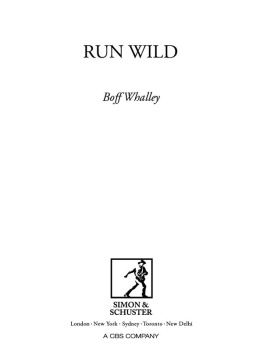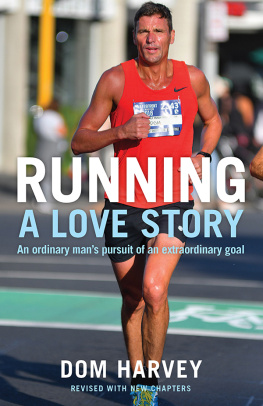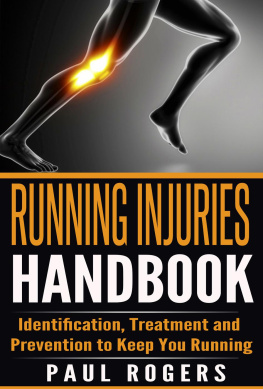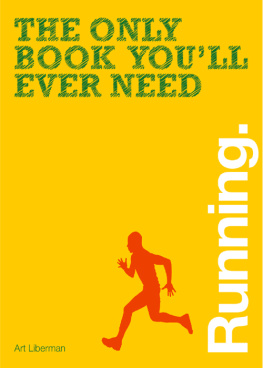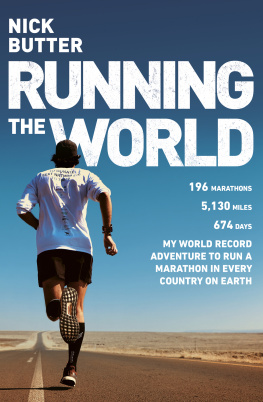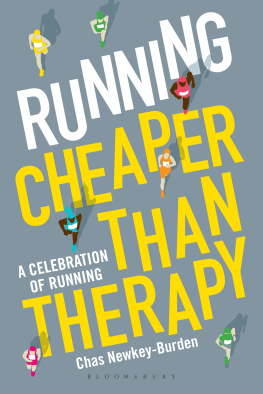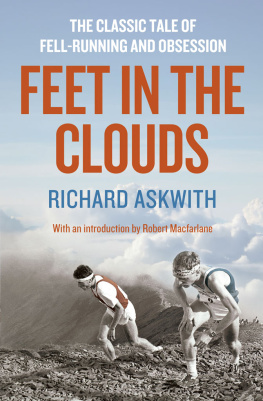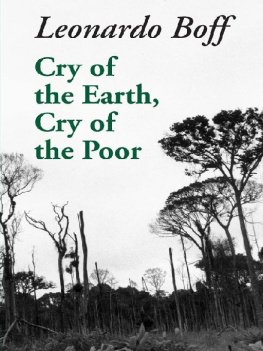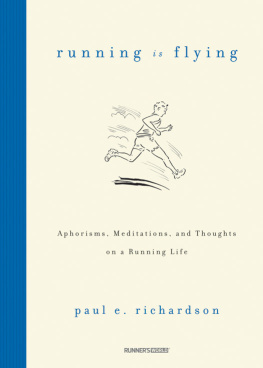RUN WILD

First published in Great Britain by Simon & Schuster UK Ltd, 2012
A CBS Company
Copyright Boff Whalley, 2012
This book is copyright under the Berne Convention
No reproduction without permission
All rights reserved.
The right of Boff Whalley to be identified as author of this work has been asserted by him in accordance with sections 77 and 78 of the Copyright, Designs and Patents Act, 1988.
Simon & Schuster UK Ltd
1st Floor
222 Grays Inn Road
London
WC1X 8HB
www.simonandschuster.co.uk
Simon & Schuster Australia
Sydney
Simon & Schuster India
New Delhi
Every reasonable effort has been made to contact copyright holders of material reproduced in this book. If any have inadvertently been overlooked, the publishers would be glad to hear from them and make good in future editions any errors or omissions brought to their attention.
A CIP catalogue record for this book is available from the British Library
Hardback ISBN 978-1-47111-061-0
Trade Paperback ISBN 978-1-47110-179-3
eBook ISBN 978-1-47110-181-6
Typeset by Hewer Text UK Ltd, Edinburgh
Printed and bound by CPI Group (UK) Ltd, Croydon, CR0 4YY
To Casey, Maisy and Johnny Johnny R. Mutt
Contents
Introduction
Two personally memorable things happened in 1981 I ran my first (and only) road marathon, and I started a band. For the following five years the band built up an audience, recorded several albums and began touring around the world. And the running? I gave it up (city-centre running failed and still fails to spark my imagination). Until, that is, one evening in 1986 when my dad convinced me to go and watch a local hill race taking place on the fells of northern England. Id seen photographs, but nothing prepared me for the compelling thrill of watching 200 runners, spattered in mud, spit and sweat, tumbling down the steep, rocky descent of a small mountainside towards the finish, smiling and gasping in equal measure. The route theyd taken would have been a good half-days walk; theyd burned up and down the fellside in less than forty-five minutes. I was hooked.
Ever since then Ive balanced a life of late-night concert halls, tour buses, airports and hotel lobbies against the unquenchable urge to get out of the cities and onto the trails, heading anywhere that leads upwards and outwards. The contrast between the two sides of life couldnt be greater but it works for me, because the extremes are complementary, each a counterpart to the other. Touring around Europe or the United States for a month in close confines with seven other people, watching Alpine or Californian mountain skylines through the windows of a bus, leaving clubs and concert halls at 3 a.m. to catch a few hours sleep before setting off again the following morning how could it possibly dovetail into the everyday discipline required of a dedicated trail runner? In truth, I never asked myself that question. Being in a band was my life, my work; but once Id discovered the ensnaring power of off-road running, there was no option other than to make both work for me.
The band is called Chumbawamba and, to most people, we had just one hit song, called Tubthumping, that was built around a chorus of: I get knocked down, but I get up again. Which, funnily enough, is incredibly apt as a description of trail running. Self-determination. Falling, pulling yourself up, carrying on. Optimism and confidence. Tree roots, loose rocks, mud and bloody scrapes. And always, despite every fall and trip, every lung-bursting climb that brings you to your knees, getting up again.
And in those thirty years of being in a band, Ive learnt to grab running opportunities when I can. Sometimes it means missing meals or sleep (or both) but that dash towards the wildness is always worth it. City parks, riverbanks, canals, woods, fields, anything green, muddy, wet, natural and alive. Some venues make it easy. In Switzerland, Germany, Austria and Italy there are venues within easy running distance of mountain ranges. Scotlands twin cities Glasgow and Edinburgh both boast short bus rides to magnificent mountains. Eastern Europe, North America and Canada, Mediterranean Europe, Scandinavia everywhere there are accessible, runnable trails to seek out.
On a tour of Japan in 1990, I filled a day off by running up (and down) Mount Fuji. Before a concert in Hebden Bridge, nestled below the English Pennine hills, I bailed out of the tour bus and ran the last fifteen miles to the venue over the winter fells. Playing in Lucerne, Switzerland, meant being able to run up the 6,000-feet Mount Pilatus that towers over the city with its incredible summit views of the Eiger and the Jungfrau. The adrenalin surge of descending from a mountain in time to shower, sound-check and perform undoubtedly feeds into the rush of playing live; the running enriches the whole experience of touring, adding a dimension of adventure and exploration that can become drained by long journeys and windowless dressing rooms.
This book is, somehow, the slow-burning result of a quarter of a century of adrenalin-fuelled runs and races. Its a book born from the realization that there is a gap, at the heart of our experience as runners, between our feet and the earth. A disconnection between our natural self-propelling motion and the dirt, water, grass and rock we move over. Being in a band (an occupation drawn in straight asphalt lines between urban centres) has meant having to fight to keep that feet-earth connection but its a fight I still enjoy. What this book isnt is a how-to guide or a training plan. This book isnt like other books about running. It isnt full of motivational stories to get you lacing up your shoes and heading for the door. It doesnt contain any exercises, tactics or secrets on how to be a better runner. Its a puzzle of a book; it doesnt go where you might expect it to go. This is what I believe running can be unpredictable and surprising.
It offers encouragement but not advice; as someone who has made my living from travelling all day to play in smoke-filled concert halls, Im decidedly unqualified to be giving runners advice. What I can offer is hope and optimism. Wild running on trails, paths, fells and mountains is gradually becoming more popular, not least because of our increasing understanding of the fragile ecology of the planet. Were relearning our history, rediscovering our roots. Replanting our feet in the soil.
And I can offer, too, some of the snotty belligerence that comes from being in a band like Chumbawamba a kick aimed at the arse of the big city marathon, that Goliath of modern running. Wild running is the perfect antidote to that mammoth, and is additionally (by a twisting, higgledy-piggledy route crossing paths with back-to-nature evangelists Thoreau, Wordsworth and Muir among others) a way back to the simple love affair between our running feet and the twisting, higgledy-piggledy world we live in.
If this book goes off at tangents, gets lost, slows, quickens and loops back around to a place it left several chapters earlier then thats because its a book about that kind of running. Off-road, wild running; running as adventure, as play, and as a way of getting back to that simplest of relationships the one between our feet and the earth.
People want to run. And apparently more and more of them, despite the current recession, are buying running shoes, paying inflated race fees, reading those how-to books and joining gyms, all in order to get in training to race their demons and specifically the demon of a comfortable, twenty-first-century indolence to prove to themselves that theyre winners. And isnt that a good thing? Isnt that a change for the better in this age of the supersized beefburger, the airport travelator and the remote control? Well, yes and no. Of course its good to see people being motivated and enthused, great to see people getting off the couch and into a pair of running shorts. But lets suppose that instead of jogging off down the street (keep turning left at every road junction and youll eventually get back home) people headed for the grass and woods, for the trails and paths. Lets suppose that people replaced the easy, all-pervasive lure of the city marathon with the world of birdsong, cloudbursts and mud. Replaced the structure of the training plan with the freedom of following their nose. The taped, marked, marshalled roads with the adventure of

